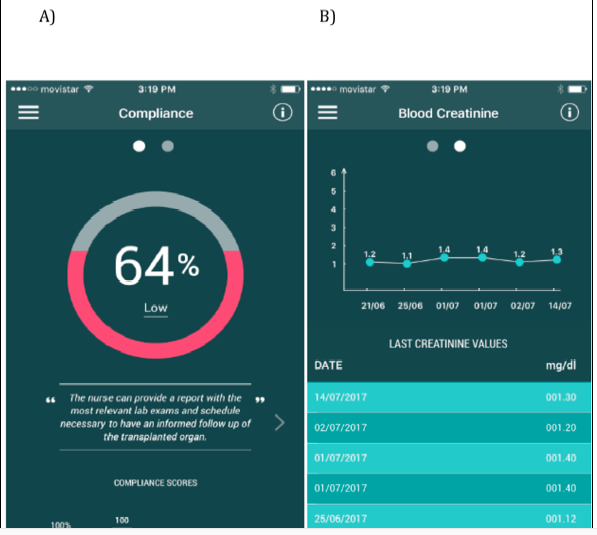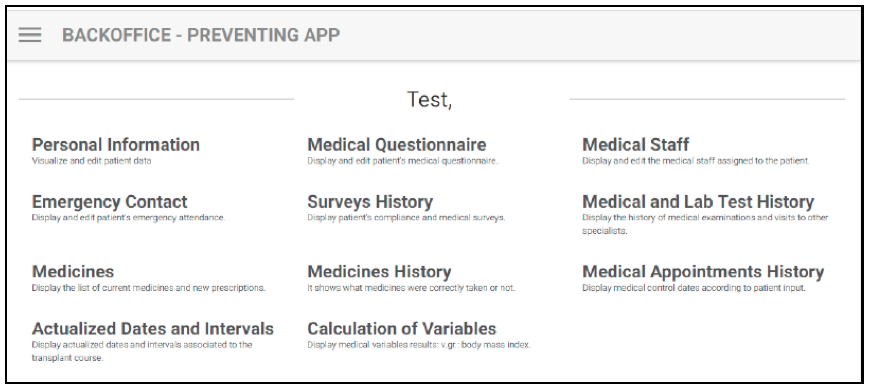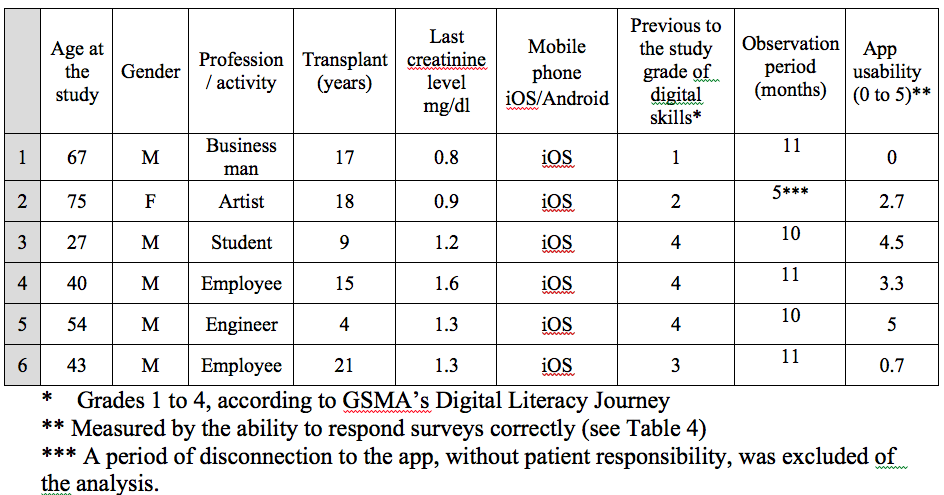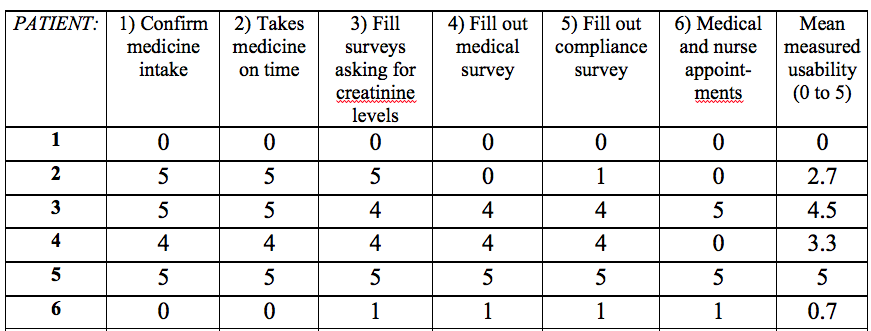"Preventing" is a New Model of Application for Mobile Phones to Assess and Improve Immunosuppressant’s Adherence in Renal Transplant Recipients; Preliminary Observational Study Evaluating Usability
Jorge Morales-Barría1, Felipe Morales2, Bernardita Celis3, Pedro Johansson4, Maria Elena Lueje5.
1Transplantation Center, Clinica Las Condes, Santiago, Chile; 2Design and Innovation, Fjord, Accenture Interactive, Stockholm, Sweden; 3Formación Integral, Universidad San Sebastian, Santiago, Chile; 4CEO, Tecnoasistencia (TNA), Santiago, Chile; 5Inversiones Rio Baker S.A., Santiago, Chile
Non-adherence to immunosuppressive drug intake is a frequent and multiple factors conditioning entity affecting renal transplant recipients so leading to premature transplanted organ loss. Measures adopted to prevent and correct non-adherence are numerous; nevertheless many of them have not been full effective, sometimes because they need to increase the personnel dedicated to patients support in other cases because the methods are expensive or difficult to implement in the long run. A new model of medical application, characterized by a significant engagement of the users in the process of his/her treatment, was developed and is presented here and described in: www.preventingapp.com. The active patient’s role consist in filling compliance and medical surveys, entry to the app relevant data, follow in time the evolution of parameters in the form of graphics appearing in dashboard easy contact with transplant staff, reminders, etc.  The information presented in the mobile is collected in the Transplant Center’s Back Office, allowing the staff to be full informed of patient evolution specially respect to barriers to adherence.
The information presented in the mobile is collected in the Transplant Center’s Back Office, allowing the staff to be full informed of patient evolution specially respect to barriers to adherence.  “Preventing” app is installed in Apple and Google stores in 3 languages: English, Spanish, and Portuguese. Only patients authorized by a transplant center can access to the app with a password.
“Preventing” app is installed in Apple and Google stores in 3 languages: English, Spanish, and Portuguese. Only patients authorized by a transplant center can access to the app with a password.
Six kidney transplant recipients after given an informed consent accepted to use the app to explore usability. Patient’s digital skills previous to the study were evaluated with the scale proposed by the GSMA’s Digital Literacy Journey that differentiate 4 stages.  To quantify patient’s app “Preventing” facility of use, data obtained of compliance and medical surveys fulfilled during the study was used. “Measured usability” was calculated in six items (scale 0 to 5) and then the mean for each patient was determined. The items for each patient were: 1) Confirming daily medicine intake appropriately; 2) Indicating that is taking medicines on time; 3) Filling blood creatinine levels surveys correctly; 4) Filling out medical survey correctly; 5) Filling out compliance survey properly; 6) Attending medical and nurse appointments as programmed.
To quantify patient’s app “Preventing” facility of use, data obtained of compliance and medical surveys fulfilled during the study was used. “Measured usability” was calculated in six items (scale 0 to 5) and then the mean for each patient was determined. The items for each patient were: 1) Confirming daily medicine intake appropriately; 2) Indicating that is taking medicines on time; 3) Filling blood creatinine levels surveys correctly; 4) Filling out medical survey correctly; 5) Filling out compliance survey properly; 6) Attending medical and nurse appointments as programmed. 
Stable renal transplant recipients with a mean age of 52 years old were followed by 11 months; their skills previous to the study showed that only a half of them were well prepared to use the app correctly. As would be expected those patients with good digital skills also demonstrated a satisfactory achievement of the app objectives having good scores in the “measured usability”. In summary, this first preliminary experience with app “Preventing” show that there are basis to explore app “Preventing” potentiality in longer studies, with a greater number of patients, also trying to establish if the app might influence or not adherence to treatment when applied in early or later stages of the transplant course.
